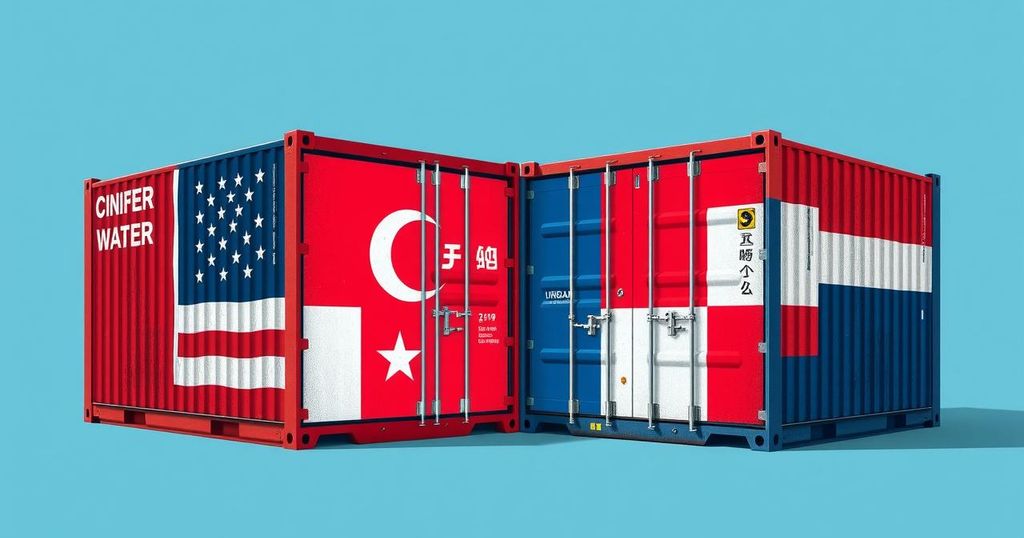Trump’s Trade War with China: An Overconfident Gamble?
President Donald Trump believes the U.S. will win the trade war with China, stating past administrations allowed job losses and industry decline. Despite this, high tariffs on American goods have been introduced in retaliation. Treasury Secretary Scott Bessent is optimistic about potential concessions from China, prioritizing U.S. economic strength. However, some experts express concern about long-term effects on American livelihoods due to ongoing trade friction.
President Donald Trump continues to shift the narrative surrounding his trade war with China, maintaining a strong belief that the U.S. will emerge victorious. He asserts that previous administrations allowed China to undermine American industries and job markets through a combination of greed and naiveté. Trump’s confidence leads him to envision a rapid rebalancing of trade once tariffs on Chinese goods take effect. Yet, this overlooks the significant tariffs that China has retaliated with on American exports.
In recent remarks, Treasury Secretary Scott Bessent expressed optimism, suggesting that Chinese leaders would ultimately concede. His view hinges on the fact that economically, China sells significantly more to the U.S.—five times more, in fact. This scenario creates an expectation for a shift, with Bessent believing it is now up to China to reduce tensions in the trade landscape.
However, there are experts who doubt this optimistic outlook. They warn that the ramifications of this trade struggle could potentially harm the American economy more than anticipated. The complexities of global trade and Second Order effects are often underestimated by public figures who are eager for quick victories.
Moreover, the tools and strategies employed in this economic standoff do not exist in a vacuum. The consequences of such trade wars can ripple through various sectors, affecting consumers and businesses across the board. The concern lies in the potential for an economic pain war, which could take a toll on American livelihoods.
As Trump’s administration presses forward with this trade policy, the shifting dynamics will require constant reevaluation. Will American markets remain resilient, or will they falter under the pressure of prolonged tariffs? Only time will tell whether the outcome aligns with Trump’s declarations of victory or whether the consequences play out in a different way altogether in the economic arena.
In summary, President Trump’s unyielding stance on the trade war with China raises numerous questions about the future of U.S. economic relations. While confidence remains high within the administration, the actual repercussions of implemented tariffs remain uncertain. As both countries navigate this tricky landscape, the impacts on American industries and consumers will be pivotal in evaluating the success or failure of this contentious trade strategy.
Original Source: www.economist.com




Post Comment